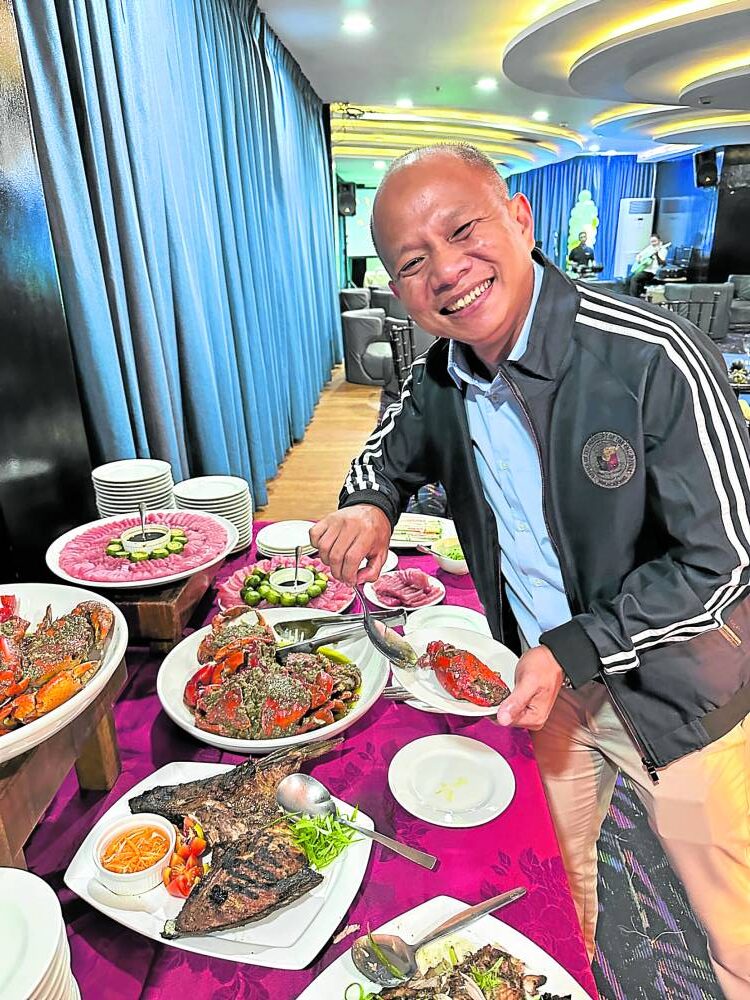
SEAFOOD FEAST Akmad Usman, director of the Department of Budget and Management, savors the best flavors of General Santos at Greenleaf Hotel. —MARGAUX SALCEDO
I was in General Santos recently and once again was blessed to partake of the flavors of Mindanao.
Of course, the first thing that we had was fresh tuna! This was absolutely fresh, with the entire fish, not just slices, laid out on the table. It was so juicy and superbly delicious!
This was served at Green Leaf Hotel, the first five-star hotel in GenSan, owned by the Teng family and personally managed by Brian Teng, whom I had the pleasure of meeting on my GenSan visit. He is a very humble businessman who is actually an economist from the University of Santo Tomas and had worked for Bank of Tokyo-Mitsubishi before taking up further studies in Taiwan. The five-star hotel, he shared, was his father’s vision for General Santos City.
His father is Domingo Teng, who is originally from Malabon, whose parents are from the Fujian province of China. The elder Teng moved to GenSan in the 1960s, selling textiles. He made a name for himself in the 1970s when he opened the first-ever supermarket and department store in GenSan, Kimball Plaza. He eventually became president of the Philippine Chamber of Commerce and Industry as well as the Chinese Chamber of Commerce and Industry in the south.
Dream come true
Brian shared that his father has always been a dreamer and envisioned a sustainable five-star hotel. This dream became a reality with Green Leaf not just being known for its modern interiors and excellent service but also for being a sustainable hotel, with 30 percent of its power coming from solar panels. This makes an impact as they have 111 rooms plus several function rooms and restaurants.
The hotel now also has one of the best Chinese restaurants in GenSan, the Tealeaf. They also have a Japanese restaurant helmed by a Filipino chef who had worked in a Japanese restaurant in Dubai for 20 years.
While GenSan is known for tuna, however, the big hit in this hotel is its version of garlic crabs. GenSan is also slowly becoming known for shrimp, while neighboring Saranggani is poised to become the shrimp capital of the Philippines.
As for GenSan being the tuna capital, though, there is tough competition from neighboring countries like Indonesia that no longer allow tuna from their waters to be shipped for canning in the Philippines. In the past, there used to be seven canneries for tuna in GenSan, with each facility employing around 2,000 workers. Today, there is not enough tuna harvested from our seas for the volume necessary to maintain these canneries.
These are possibly points that we can explore as the administration seeks to achieve its Agenda for Prosperity. It would be wonderful to see GenSan truly thrive as a center for tuna not just in the Philippines but in the world! Like Domingo Teng, let’s continue to dream and work hard to achieve these dreams, especially for the country!

